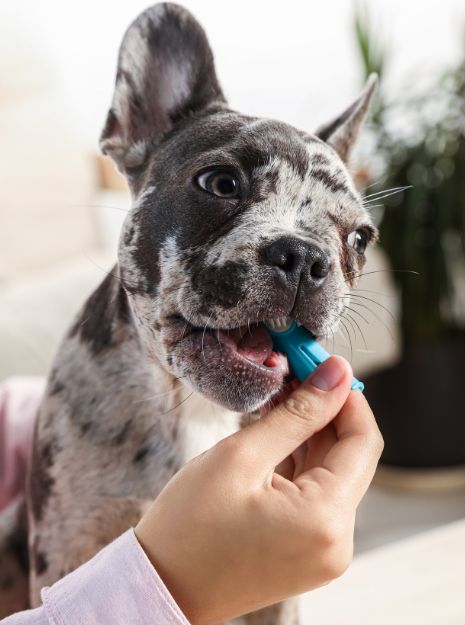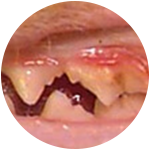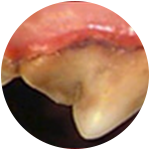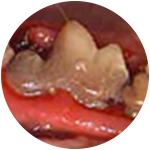Pet Dentistry
Protect your pet’s health with expert pet dentistry in Tucson, AZ, at Cimarron Animal Hospital. Schedule a dental exam today!
Pet Dentistry in Tucson, AZ
Your pet’s dental health plays a crucial role in their overall well-being. At Cimarron Animal Hospital, we’re proud to provide comprehensive pet dentistry in Tucson, AZ, helping pets maintain healthy teeth and gums while preventing serious health issues linked to poor oral hygiene. Dental disease doesn’t just affect the mouth; it can impact vital organs such as the heart, kidneys, and liver. Regular dental care ensures your pet stays happy, healthy, and pain-free for years to come.

Understanding the Stages of Pet Dental Disease

Stage 1: Mild Gingivitis
At this stage, your pet may only show subtle signs like bad breath or red gums. A professional cleaning can quickly reverse these early symptoms.

Stage 2: Moderate Periodontitis
Plaque buildup and gum inflammation worsen, potentially leading to oral infections. Immediate dental cleaning is necessary to prevent further damage.

Stage 3: Advanced Periodontal Disease
Bacteria begin to affect the gums and surrounding tissue. Without intervention, this can cause permanent damage to your pet’s teeth and internal organs.

Stage 4: Severe Dental Disease
Bone loss, severe pain, and systemic infection are common at this stage. Tooth extractions and aggressive treatment may be the only way to alleviate your pet’s discomfort.
Comprehensive Dental Treatments
At Cimarron Animal Hospital, we take a thorough approach to pet dentistry. Every dental procedure includes detailed pre-dental testing, advanced monitoring, and a team dedicated to your pet’s safety and comfort. Our services include:
- Dental Radiographs: Dental X-rays are essential for diagnosing issues beneath the gumline, such as fractures, infections, or bone loss.
- Ultrasonic Scaling and Polishing: We remove tartar and debris, preventing premature plaque buildup.
- Gingival Antiseptic Flushing: A flush cleanses the gums to minimize bacterial reinfection.
- Plaque Barrier Sealants: This care provides extra protection to reduce tartar buildup between cleanings.
- Periodontal Deep Cleaning: We thoroughly clean below the gumline to remove plaque, tartar, and bacteria, preventing periodontal disease.
- Oronasal Fistula Repair: We can surgically repair abnormal openings between the oral and nasal cavities, restoring function and preventing infection.
- Post-Treatment Care: This includes pain management and recommendations for at-home dental care to maintain results.
Safe and Effective Anesthesia for Your Pet
We understand that many pet owners worry about anesthesia. At Cimarron Animal Hospital, your pet’s safety is our top priority. Every patient undergoes pre-dental testing to ensure they are healthy enough for the procedure. During treatment, a Certified Veterinary Technician closely monitors your pet using advanced electronic equipment. With these precautions, we minimize risks and maximize the benefits of professional dental care.
Preventing Dental Disease at Home
While professional cleanings are essential, at-home care is key to maintaining your pet’s dental health. We’ll provide you with tailored recommendations, including dental chews, pet-safe toothpaste, and tips for introducing regular brushing. Products like Oravet plaque barrier sealants can also be used weekly to protect your pet’s teeth.
Schedule Your Pet’s Dental Exam Today
Don’t wait until dental disease takes a toll on your pet’s health. Schedule your pet’s free dental exam where our our knowledgeable Certified Veterinary Technicians will create a dental care plan that keeps your furry friend smiling for years to come. Call Cimarron Animal Hospital today to learn more or to book your pet’s dental evaluation!
